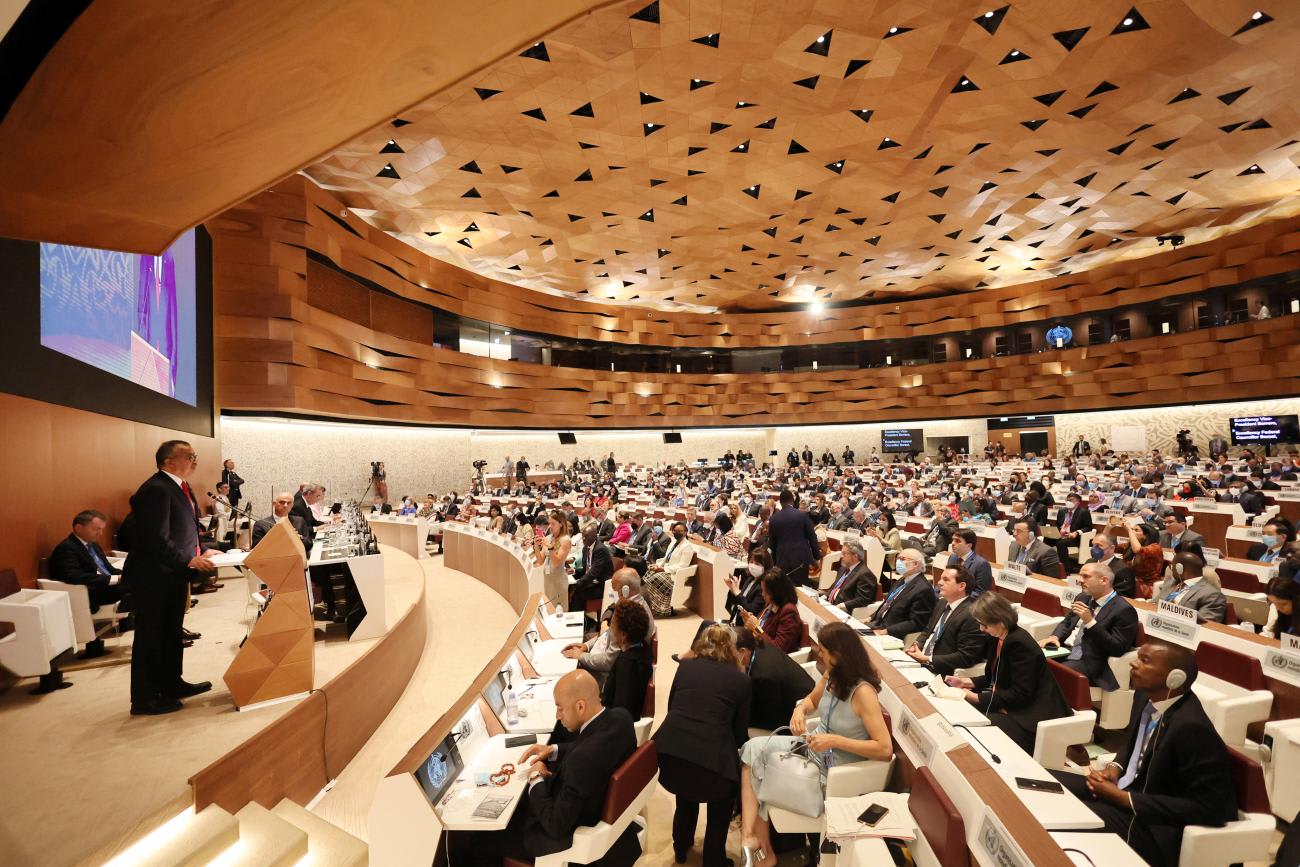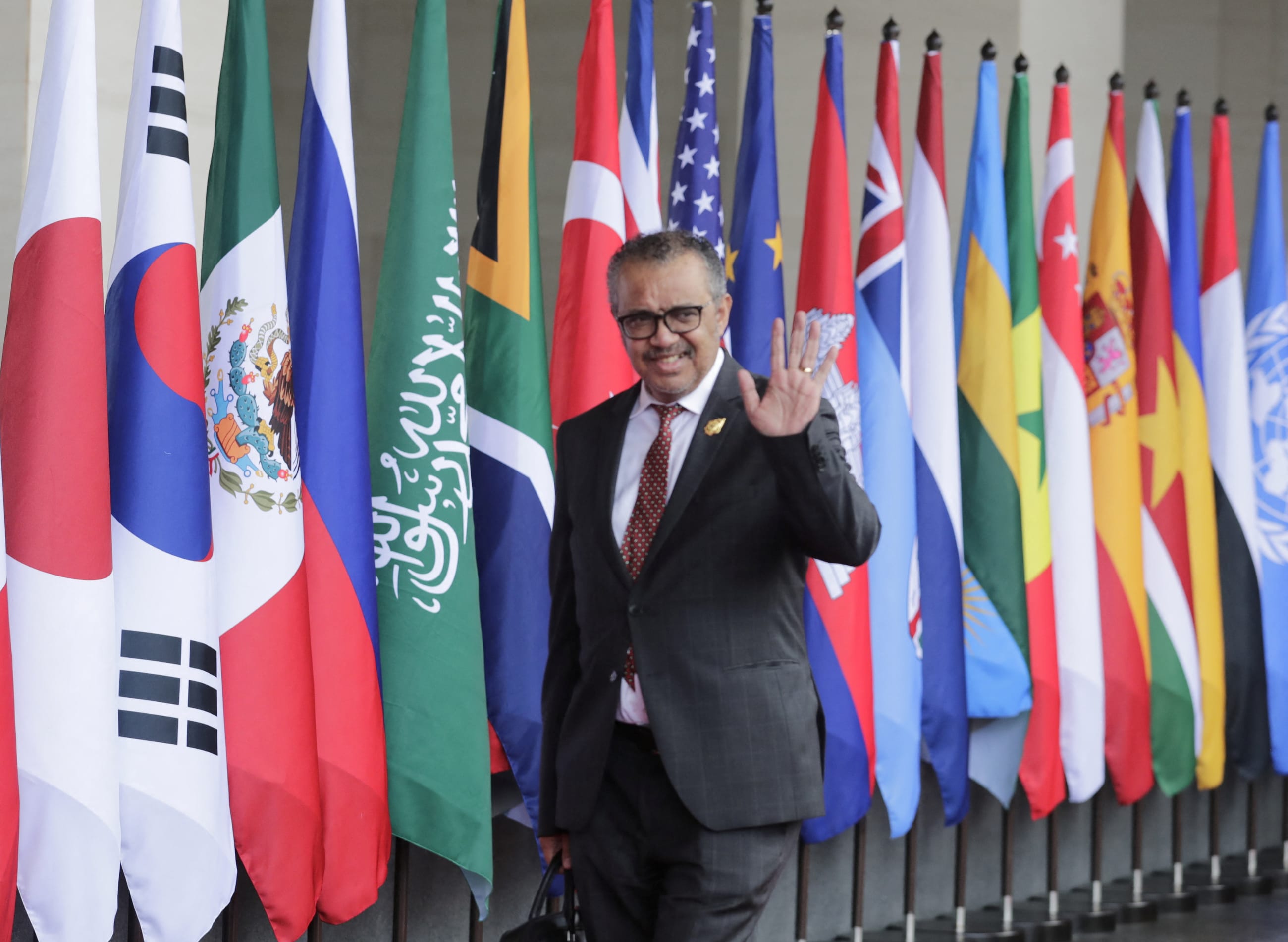Every year in January, the World Health Organization's (WHO) executive board convenes in Geneva to debate global health policy and chart a course toward the annual World Health Assembly in May. With diplomats from virtually all member states expected to participate (thirty-four member states comprise the executive board and all can attend), the upcoming meeting, beginning on January 30, will set the tone and WHO priorities for the rest of the year.
WHO is the world's leading authority on health, and has maintained a high degree of trust against the headwinds of polarization, so the decisions that will emanate from the executive board meeting will be influential. But a few agenda items will be particularly consequential, given their salience in other forums and discussions. Three main themes are likely to rise to the top of this year's gathering:
Ten Bold Proposals for a Safer and More Equitable World
In the spring of 2022, WHO Director-General Tedros Adhanom Ghebreyesus offered a set of ten proposals to strengthen the global architecture for Health Emergency Preparedness and Response (HEPR). This month, in advance of the executive board meeting, he published an update to those proposals, articulating a course of action on the 300-plus recommendations that have emerged from various independent evaluations of the global COVID-19 response. For the first time, WHO is directly asking member states at the executive board to provide guidance on the path forward.
The WHO is the world's leading authority on health, and has maintained a high degree of trust against the headwinds of polarization
WHO's HEPR vision covers the waterfront of solutions to strengthen the global ecosystem for preparedness and response, including established pathways like the future pandemic accord, targeted amendments to the International Health Regulations and the new World Bank-hosted Pandemic Fund. It also seeks to stimulate further discussion on novel mechanisms that have been recommended but not yet actively taken up by member states, including a heads of state-level Global Health Emergency Council formed under the auspices of the WHO constitution, and a potential for at-the-ready draw-down financing mechanisms to enable rapid deployment of scaled resources for response.
The proposals on financing, which would operate under a "no regrets" principle, would include for development, procurement, and delivery of countermeasures, similar to a recommendation of the ACT Accelerator independent evaluation last fall; and a potential expansion of the WHO Contingency Fund for Emergencies for scaled, early, multisectoral response (e.g. on emergency supply chains or health emergency workforce deployment).
Some of the proposals are likely to yield wide and easy support, such as strengthening systems at all levels—sub-nationally, nationally, regionally, and globally—for collaborative surveillance, community protection, and continuation of care. For others, like the proposed emergencies council, the executive board meeting presents an opportunity for member states to express on the record whether or how they'd like to see the concept advanced. There's a high likelihood for divergence of views, making the path forward hard to predict.

From Words to Action on Sustainable Financing for the WHO
As fresh areas of work on health emergencies develop through the HEPR proposals and elsewhere, the WHO continues to deliver measurable results on a vast program of work with an annual budget equivalent to the budget a medium-sized hospital in the United States.
Recognizing a mismatch between their outsized expectations and comparatively modest funding for the organization, at the 75th World Health Assembly in May 2022, member states committed to a transformative new plan to improve the WHO's financial structure. Moving away from unpredictable and heavily earmarked voluntary contributions, member states agreed to slowly increase the proportion of the base budget that is funded by assessed contributions (membership dues) to 50 percent by the 2030-2031 biennium, or sooner.
The upcoming executive board meeting will be the first time member states will be expected to make good on their promise to approve recommendations for a 20 percent increase to the scale of assessed contributions for the 2024-2025 biennium budget. These increases should not be especially burdensome. Germany, for example, would be signing on for a gross increase of $9.44 million over the next two years. For Eswatini, an additional $3,022 would be expected.
These absolute dollar amounts are comparatively low, especially considering that every $1 invested in WHO brings a return on investment of $35. However, the outcome of this discussion is not a foregone conclusion given the uncertain direction of the global economy, inflationary pressures, and other competing budget priorities.
The member states' decision will also be partly informed by progress on reforms to the organization's financing, human resources, and accountability—including progress on its efforts to stamp out sexual exploitation and abuse in emergency settings. The decision that is advanced through the executive board and ultimately approved by the World Health Assembly in May will be a precedent-setting indicator of member states' willingness to act upon their historic pledge to provide higher quality financing to the WHO.
WHO's executive board meeting is the first of many consequential calendar moments for global health governance in 2023
The Starting Gun for Global Health in 2023
The executive board meeting is the first of many consequential calendar moments for global health governance in 2023. The highly anticipated zero draft of the pandemic accord will be available in the first few days of February (while the executive board meeting is still underway), with the Intergovernmental Negotiating Body, and the Working Group on Amendments to the International Health Regulations, both set to deliver progress reports to the World Health Assembly in May.
Also in May, the strategic importance of healthy, secure populations will feature prominently in both the Japanese government's vision for the G7 Heads of State Summit in Hiroshima and the Health Ministers' meeting in Nagasaki.
Later in the year, in September, attention will focus on New York as an unprecedented three high-level meetings on health are scheduled to take place during the UN General Assembly With the world massively offtrack to achieve universal health coverage by 2030, a meeting on Universal Health Coverage (UHC) will spotlight how investing in primary health care must be both the foundation for achieving UHC and pandemic preparedness. A separate meeting on Pandemic Prevention, Preparedness, and Response (PPPR) will refocus high-level political will in support of whole-of-society approaches to PPPR, increase international financing for preparedness, and devise new opportunities for ambitious multilateral solutions for PPPR. A third meeting focused on tuberculosis will review progress against the targets set during a 2018 high-level meeting.
What happens at the executive board meeting in Geneva, formally and informally, will start to give shape to what member states see as ambition for the political declarations of 2023's forthcoming high-level meetings.












